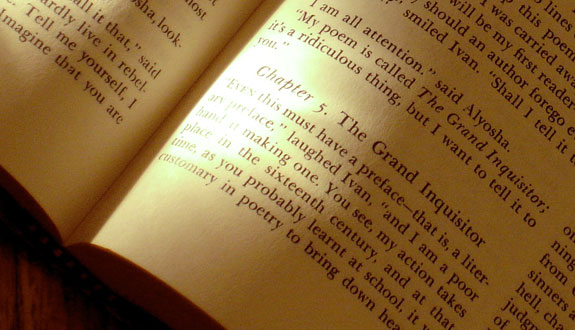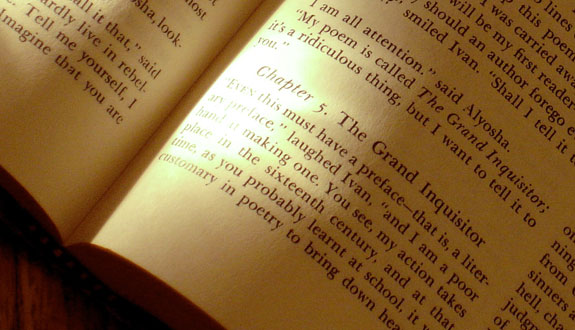Oh, the Humanity!: Comparing Dostoevsky to the LSAT
- by
- Nov 02, 2011
- LSAT, Odds and Ends
- Reviewed by: Matt Riley


The October 2011 LSAT introduced many of you to the works of Fyodor Dostoevsky, which is the first worthwhile thing it’s done for most of you (I kid). Dostoevsky is only matched by Vonnegut in my literary heart. His novels, especially The Brothers Karamazov, manage to include so many universal themes that they speak to humanity itself, and no less. I’m trying to sound like a grandiose, self-important literary critic here; is it working?
Anyway, The Brothers K is my favorite novel, but it’s one hell of a depressing story. Which, you know, makes it a little like the LSAT. List time!
1) Crazy names
Mitya. Vanya. Alexeichik. Vanechka. Ivan. Mitri. Mitenka. Alyosha. Dmitri. Would you believe those are only three people?
While I’m sure the appellations all make sense if you speak Russian, the names in The Brothers K are as crazy as the ones on the LSAT. Jabrohn, Reveka and Sihena would be just at home in Skotoprigonyevsk as they are in the pages of the LSAT.
2) Existential crises
The Brothers K explores dense themes regarding religion, life and free will. Halfway through The Grand Inquisitor, Dostoevsky will have you rethinking everything you know about your life.
And that’s about how far you get into the LSAT before you start doing the same. Your future, your intelligence, even your God (“God, if you exist, help me answer this logic game,” you think, you blasphemer!). All will become uncertain as you sit there, contemplating Grushenka’s place in the universe (can she be second?).
3) Complete human disunity
Not to give anything away, but someone murdered Nikolai Fyodorovich Fyodorov, the father of the titular brothers. Through the investigation, Dostoevsky explores the complete human disunity that this act represents.
Mid-LSAT studying, didn’t you feel the same way? Personal hygiene sometimes slipped a bit. You were rambling about sufficient conditions. Everyone’s arguments were flawed, and you felt the need to point it out.
4) The author died four months after its publication
Well, this one wasn’t repeated by the LSAT. But I’ve heard many people out there wish it so…
5) Why use a single word when ten convoluted ones will do just as well?
Dostoevsky had a lot to say in his masterpiece, The Brothers K. And he said it all. It’s dense, complex and multi-layered.
Even so, he probably could have cut a few words out. The sentences are complex to the point of being intentionally meandering. While contributing to the character of the narrator, it makes for one hell of a tough read.
Just like those answer choices to flaw and, well, every other question. Why would they make it easy with answers like, “It’s a sufficient and necessary flaw, dummy!” when they could instead tell you, “The argument presupposes that something that may or may not have once elicited a certain response is the only thing that can reference said response”?
Search the Blog

Free LSAT Practice Account
Sign up for a free Blueprint LSAT account and get access to a free trial of the Self-Paced Course and a free practice LSAT with a detailed score report, mind-blowing analytics, and explanatory videos.
Learn More
Popular Posts
-
logic games Game Over: LSAC Says Farewell to Logic Games
-
General LSAT Advice How to Get a 180 on the LSAT
-
Entertainment Revisiting Elle's LSAT Journey from Legally Blonde








